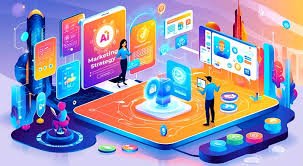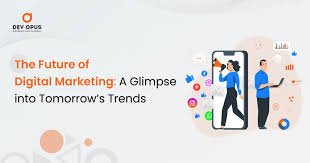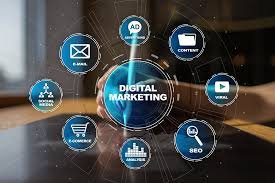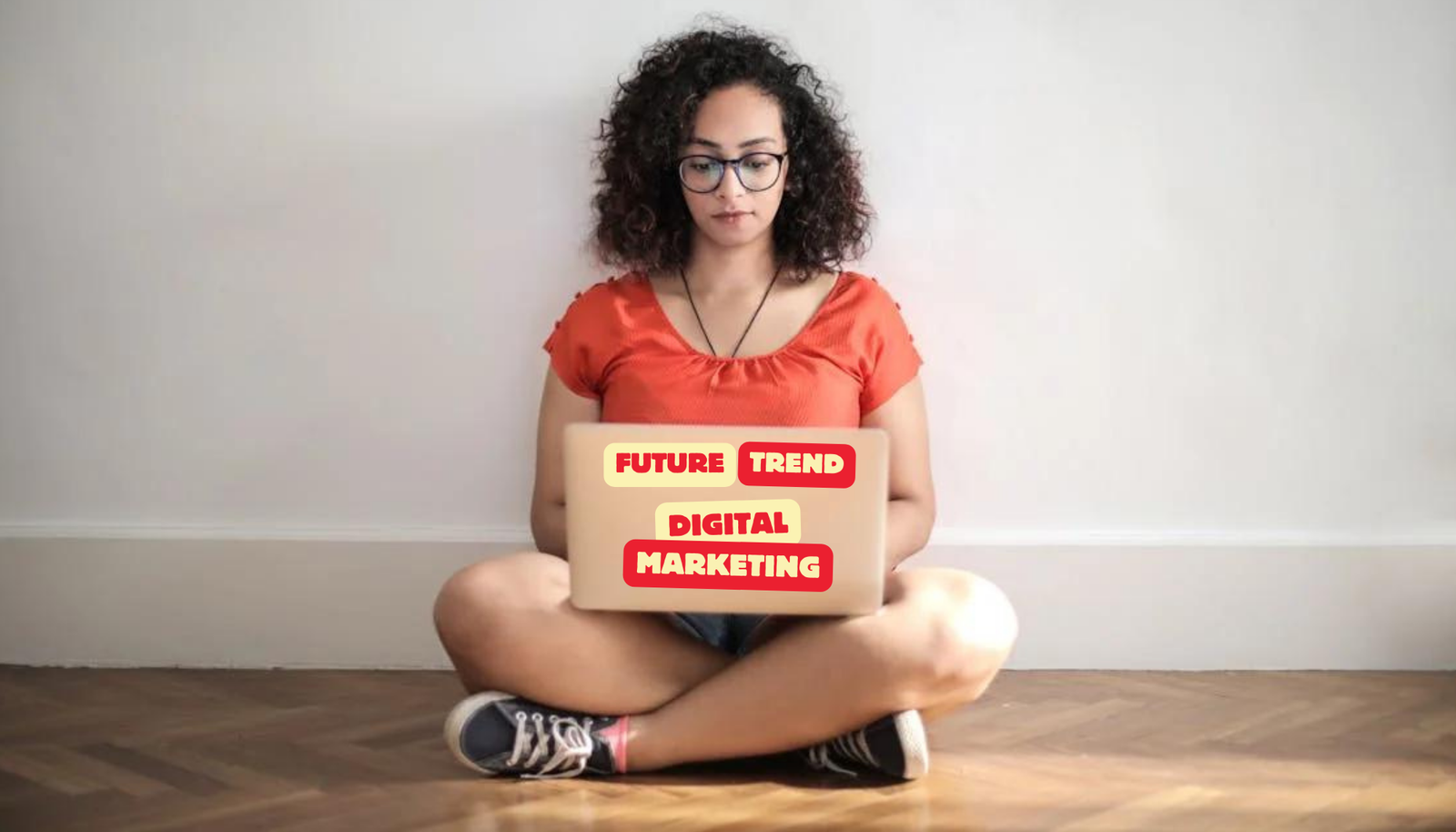Future Trends in digital marketing is driven by AI, automation, and personalization. Brands are leveraging data-driven insights to create hyper-targeted campaigns, enhancing customer experience. Voice search, chatbots, and interactive content are becoming essential for engagement. Social media platforms continue to evolve, with short-form video content dominating. Augmented reality (AR) and virtual reality (VR) offer immersive brand experiences. Privacy concerns are shaping a cookie less future, emphasizing first-party data strategies. Influencer marketing remains powerful, but authenticity is key. As technology advances, businesses must adapt to stay ahead in the ever-changing digital landscape. Agility and innovation will define marketing success.

AI-Powered Marketing Automation
Artificial Intelligence (AI) and machine learning are revolutionizing marketing automation, enabling marketers to deliver more personalized and targeted experiences at scale. AI-powered tools can analyze vast amounts of data to predict consumer behavior, optimize campaigns, and automate repetitive tasks, freeing up marketers to focus on strategy and creativity.
Impact:
- Enhanced customer segmentation and targeting.
- Personalized content recommendations and product suggestions.
- Automated email marketing campaigns with dynamic content.
Voice Search Optimization
The proliferation of voice-activated devices and virtual assistants is changing the way consumers search for information and interact with brands. Optimizing content for voice search requires a different approach than traditional SEO, focusing on natural language queries and conversational content.
Impact:
- Increased demand for long-tail keywords and question-based queries.
- Optimization of content for featured snippets and knowledge graph results.
- Local businesses prioritizing voice search optimization for mobile users.

Interactive Content Experiences
Interactive content engages audiences more effectively than static content by encouraging active participation and providing personalized experiences. From quizzes and polls to augmented reality (AR) experiences, interactive content captures attention and drives higher levels of engagement.
Impact:
- Higher conversion rates and increased time spent on page.
- Enhanced brand storytelling and immersive brand experiences.
- Adoption of interactive content formats across social media platforms and websites.
Privacy-Centric Marketing
Growing concerns around data privacy and regulations like GDPR and CCPA are prompting marketers to adopt more transparent and ethical practices. Building trust with consumers requires a commitment to data protection and transparency in how their information is collected and used.
Impact:
- Increased emphasis on first-party data collection and consent-based marketing.
- Implementation of privacy-enhancing technologies like differential privacy and federated learning.
- Adoption of zero-party data strategies, where consumers willingly share their preferences and information in exchange for personalized experiences.
Video Continues to Dominate
Video remains one of the most engaging and effective forms of content, with consumption continuing to rise across platforms. Short-form videos, live streams, and interactive video experiences are driving engagement and fueling brand storytelling in new and innovative ways.
Impact:
- Investment in video content production and distribution across social media platforms and streaming services.
- Integration of shoppable video features for seamless e-commerce experiences.
- Growth of user-generated video content and influencer partnerships.

Sustainability and Social Responsibility
Consumers are increasingly conscious of environmental and social issues, and they expect brands to demonstrate a commitment to sustainability and social responsibility. Marketing strategies that emphasize purpose-driven messaging and sustainable practices resonate with environmentally and socially conscious consumers.
Impact:
- Adoption of eco-friendly packaging and sustainable production practices.
- Integration of cause marketing campaigns that support social and environmental causes.
- Transparency in supply chains and ethical sourcing of materials.
Augmented Reality (AR) and Virtual Reality (VR)
AR and VR technologies are blurring the lines between the physical and digital worlds, creating immersive brand experiences that captivate audiences. From virtual try-on experiences to interactive product demonstrations, AR and VR are transforming how consumers interact with brands and make purchasing decisions.
Impact:
- Integration of AR try-on experiences in the beauty, fashion, and furniture industries.
- Adoption of VR-based training programs for employee onboarding and skill development.
- Use of AR-powered navigation and interactive maps for location-based marketing.
Micro-Moments and Personalization
Consumers increasingly expect instant access to information and personalized experiences across devices and channels. Marketers must capitalize on micro-moments – brief windows of opportunity when consumers are actively seeking information – to deliver relevant and timely content that meets their needs.
Impact:
- Adoption of real-time marketing strategies that leverage data and AI to deliver personalized experiences.
- Integration of chatbots and virtual assistants to provide instant support and assistance.
- Use of location-based targeting and contextual messaging to reach consumers in the right place at the right time.
Conclusion
The future of digital marketing promises to be both exciting and challenging, with rapid advancements in technology and shifting consumer behaviors reshaping the industry landscape. By embracing emerging trends such as AI-powered marketing automation, voice search optimization, interactive content experiences, and privacy-centric marketing, marketers can stay ahead of the curve and drive meaningful results for their brands. With a commitment to innovation, creativity, and customer-centricity, marketers can navigate the evolving digital landscape and unlock new opportunities for growth and engagement in the years to come.


You have remarked very interesting details ! ps nice web site.